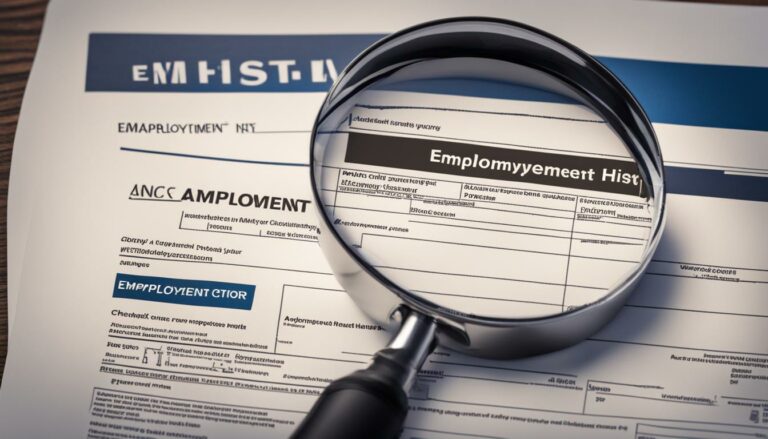Step-by-Step Guide: How to Become a Property Manager in Las Vegas.
Step-by-Step Guide: How to Become a Property Manager in Las Vegas
Welcome to our Step-by-Step Guide: How to Become a Property Manager in Las Vegas. If you’ve ever wondered what it takes to break into the property management industry in the bustling city of Las Vegas, you’re in the right place. This guide will walk you through the essential steps, from the qualifications you’ll need to the insider tips that will set you apart in this competitive field
Expanding Horizons: The Perks of Being a Property Manager
From my years of experience in the bustling Las Vegas real estate scene, I’ve learned that wearing the hat of a property manager can be incredibly rewarding. Firstly, there’s the undeniable benefit of a diversified income stream. In a city where the real estate market can be as unpredictable as a roll of the dice, the steady monthly rental income from property management is a lifesaver during market downturns. It’s like having a financial cushion that keeps you afloat when sales are slow.
Then there’s the aspect of client relationships. Over the years, I’ve seen many instances where managing a property has led to getting the listing when the landlord decides to sell. It’s about being there, consistently providing value, and building a relationship that lasts. This long-term connection often turns into repeat business, which is gold in our industry.
Lastly, focusing on investor business through property management opens doors to more volume per investor compared to working with first-time buyers. It’s about tapping into repetitive business and securing a monthly income stream from each investor. In a city like Las Vegas, where investment opportunities are as plentiful as the neon lights, this approach has proven to be a game-changer for my career.
The Booming Real Estate Market and the Role of Property Managers
Las Vegas, often dubbed the “Entertainment Capital of the World,” is not just renowned for its glitzy casinos and vibrant nightlife. Over the years, it has emerged as a hotspot for real estate, with a market that’s as dynamic as the city itself. From the iconic Strip to the serene suburbs, properties in Las Vegas are in high demand, and this surge has brought to the forefront a key player in the real estate arena: the property manager.
Property managers are the unsung heroes of the real estate world. They act as the bridge between property owners and tenants, ensuring smooth transactions, optimal property maintenance, and, most importantly, satisfied clients. In a city like Las Vegas, where properties range from luxurious penthouses to sprawling single-family homes, the role of a property manager becomes even more crucial. They navigate the intricacies of the market, stay updated with local regulations, and ensure that every property under their care is a lucrative investment for the owner and a dream home for the tenant.
As Las Vegas continues to grow, both in population and in real estate opportunities, the demand for skilled property managers is on the rise. If you’ve ever considered a career in this dynamic field, there’s no better time than now. This guide will walk you through the steps to become a successful property manager in Las Vegas, ensuring you’re well-equipped to thrive in this booming market.

Step-by-Step Guide to Obtaining a Property Management Permit in Las Vegas
Step 1: Understand the Role and Requirements
- Before diving into the process, it’s essential to have a clear understanding of what a property manager does and the responsibilities associated with the role.
- Familiarize yourself with the educational and experience prerequisites. In Nevada, you need to have an active Nevada real estate license before you can apply for a property management permit.
Step 2: Complete the Required Education
- Enroll in an approved school that offers the property management pre-permit course. The course typically covers topics like landlord-tenant laws, lease agreements, and property maintenance.
- Successfully complete the course and obtain the necessary certification. Some of the approved schools include Key Realty School, CSN, and TMCC, among others.
Step 3: Prepare for and Pass the Examination
- Schedule your examination with Pearson VUE. Ensure you’re adequately prepared by reviewing the Nevada Real Estate Candidate Handbook and other available resources.
- Take the property management examination. It’s crucial to be well-prepared, as this exam tests your knowledge on various aspects of property management specific to Nevada.
Step 4: Submit Your Application
- Once you’ve passed the examination, gather all required documents, including your course completion certificate and exam results.
- Visit the Nevada Real Estate Division’s website and access the Property Manager Initial Requirements section. Here, you’ll find detailed instructions and the necessary forms to apply for your property management permit.
- Submit your application along with the required fees and any additional documentation.
Step 5: Stay Updated and Compliant
- After obtaining your permit, it’s essential to stay updated with any changes in real estate laws and regulations in Nevada.
- Engage in continuous learning opportunities, attend workshops, and consider mentorship programs to enhance your skills and knowledge.
- Ensure you renew your permit as required and complete any ongoing education or training requirements.
By following these steps and ensuring you meet all the requirements, you’ll be well on your way to becoming a licensed property manager in Las Vegas. Remember, the real estate industry is dynamic, so staying updated and continuously enhancing your skills will be key to your success.
Licensing and Permits Requirements for Property Managers in Las Vegas
In the bustling real estate market of Las Vegas, property managers play a pivotal role in ensuring smooth transactions and maintaining properties. To become a property manager in Las Vegas, there are specific licensing and permit requirements that must be met. Here’s a breakdown of the steps and requirements:
- Nevada Real Estate License: Before applying for a Property Manager Permit, an individual must first obtain a Nevada Real Estate license. It’s important to note that the Property Manager application will not be accepted alongside the original application for a real estate license. The Nevada Real Estate license must be received prior to the submission of the Property Manager permit application.
- Application Process:
- Complete the Property Management Permit application Form 545.
- Attach a copy of the 24-hour pre-licensing property manager education certificate.
- Provide proof of passing the property manager state exam. The original certificate is required and must be dated within one year of your property manager application submission date to the Nevada Real Estate Division (NRED).
- An application fee of $40.00 is required. This can be paid in cash (exact change), checks, or money orders made payable to NRED, or by credit card for in-person transactions.
- Designated Property Manager and Broker/Property Manager: The Real Estate Broker or Designated Property Manager must complete specific sections of the application. This includes declaring their intent to employ or associate with the applicant and ensuring they will exercise careful supervision over the applicant’s real estate and property management activities.
- Nevada Business License: All applicants must report the existence of a Nevada business license. This can be a license number assigned by the Nevada Secretary of State upon compliance with the provisions of NRS Chapter 76, or an acknowledgment that an application for a Nevada business license is pending.
- Additional Resources: For more detailed information, applicants can refer to the Nevada Real Estate Division’s guidelines and the Nevada Revised Statutes.
It’s essential for aspiring property managers to be well-informed and adhere to all the requirements set by the state. This ensures professionalism, credibility, and the ability to provide top-notch services in the Las Vegas real estate market.
Examination with Pearson VUE:
Pearson VUE is the official examination body for the Nevada Real Estate Division. Aspiring property managers in Las Vegas must undergo examinations facilitated by Pearson VUE to validate their knowledge and skills. The examination process is rigorous and ensures that only qualified individuals are granted the necessary permits to operate as property managers in the state.
To schedule, reschedule, or cancel an exam, candidates can sign in or create an account on the Pearson VUE website. It’s crucial for candidates to ensure that they have created their web account with their legal name as it appears on their government-issued ID. Any discrepancies can lead to complications during the examination process. Appointments for the exam can be made up to one calendar day prior to the desired test date, subject to availability. Examinations can be scheduled online or over the phone by contacting Pearson VUE’s customer service.
For those preparing for the exam, Pearson VUE offers Broker and Sales practice tests for a fee. These tests cover general real estate topics and are developed using concepts found in the general portion of the actual exam. It’s a valuable resource for candidates looking to familiarize themselves with the examination format and content.
It’s recommended for candidates to review this handbook as it likely contains detailed information about the examination process, content outlines, and other essential guidelines.
For a comprehensive understanding of the examination process and requirements, candidates should refer to the official Pearson VUE website and the Nevada Real Estate Division website.
Understanding the Role of a Property Manager
At its core, property management is about stewardship. It’s about ensuring that a property, whether residential or commercial, is maintained, occupied, and profitable. But what does this entail on a day-to-day basis? Let’s delve into the multifaceted role of a property manager.
Responsibilities:
- Tenant Relations: One of the primary responsibilities of a property manager is to serve as the point of contact for tenants. This includes everything from screening potential tenants and handling lease agreements to addressing tenant concerns and, if necessary, managing evictions.
- Maintenance and Repairs: A property manager ensures that the property is in top condition. This involves conducting regular inspections, scheduling preventive maintenance, and addressing repair issues promptly, whether it’s a leaky faucet in a residential unit or an HVAC issue in a commercial building.
- Financial Management: Property managers handle the financial aspects of property ownership. This includes collecting rent, setting competitive rental prices, managing the property’s budget, and providing regular financial statements to property owners.
- Legal Compliance: With ever-changing local and state regulations, property managers ensure that properties comply with all relevant laws, from property codes and safety regulations to tenant rights.
- Marketing and Vacancy Filling: An empty property is a cost to the owner. Property managers actively market vacant properties, using a mix of traditional advertising, online listings, and even social media to attract potential tenants.
Daily Tasks: A day in the life of a property manager is diverse. It might start with a property inspection, followed by meetings with potential tenants. The afternoon could be spent reviewing financial statements and addressing maintenance requests, while the evening might involve a community meeting or a seminar on local real estate trends.
In essence, a property manager wears many hats. They’re negotiators, marketers, handymen, financial advisors, and, above all, problem solvers. Their role is pivotal in ensuring that a property is not just a building but a thriving investment and a home for its residents

Educational Pathways for Aspiring Property Managers
The journey to becoming a proficient property manager often begins with a solid educational foundation. While hands-on experience is invaluable, formal education equips aspiring property managers with the theoretical knowledge and industry insights necessary to excel in the field. Here’s a look at the educational pathways that can pave the way for a successful career in property management:
1. Academic Degrees:
- Bachelor’s Degree in Real Estate or Business Administration: Many universities offer specialized programs in real estate, providing students with a comprehensive understanding of property laws, real estate finance, and property development. A degree in Business Administration with a focus on real estate can also be beneficial, offering insights into business operations, marketing, and management.
- Master’s Degree in Real Estate or Property Management: For those looking to delve deeper or aspire to higher managerial roles, a master’s degree can provide advanced knowledge in real estate economics, property valuation, and investment strategies.
2. Certifications:
- Certified Property Manager (CPM): Offered by the Institute of Real Estate Management (IREM), the CPM designation is recognized globally and covers topics like financial operations, risk management, and leasing and marketing.
- Residential Management Professional (RMP): This certification, offered by the National Association of Residential Property Managers (NARPM), is tailored for those managing single-family homes and small residential properties.
- Accredited Residential Manager (ARM): Another certification from IREM, ARM focuses on residential site management, including topics like budgeting, leasing, and maintenance.
3. Continuing Education and Workshops: The real estate industry is ever-evolving, with new regulations, market trends, and technologies emerging regularly. As such, property managers should consider attending workshops, seminars, and courses that offer updated knowledge and skills. Many state and local real estate associations offer these opportunities, ensuring property managers stay ahead of the curve.
4. Licensing: While not strictly an educational pathway, it’s essential to note that many states, including Nevada, require property managers to hold a real estate broker’s license or a specific property management license. This often involves coursework and passing a state exam.
In conclusion, while the educational journey for each property manager might differ, the goal remains the same: to equip oneself with the knowledge and skills to manage properties effectively and efficiently. Whether it’s through formal degrees, certifications, or continuous learning, education plays a pivotal role in shaping successful property managers.
Property Management in Nevada: Permit over License
In the state of Nevada, individuals interested in property management don’t obtain a separate “license” for property management per se. Instead, they acquire a Property Management Permit. This permit is an addition to either the Nevada Real Estate Salesperson License or the Nevada Broker’s License. Here’s a breakdown of the process and requirements:
- Prerequisite Licensing: Before one can apply for a Property Management Permit, they must first hold an active Nevada Real Estate Salesperson License or a Nevada Broker’s License. This foundational licensing ensures that the individual has a basic understanding of real estate operations in the state.
- Education: Aspiring property managers must complete specific educational courses tailored to property management. These courses cover a range of topics, from tenant relations and lease agreements to Nevada-specific regulations and property maintenance.
- Application for the Permit: Once the educational requirements are met, individuals can apply for the Property Management Permit. This involves submitting proof of completed education, undergoing background checks, and paying the necessary fees.
- Ongoing Education: Holding a Property Management Permit in Nevada also requires continuous education. Property managers must periodically take courses to renew their permits, ensuring they stay updated with the latest industry practices and regulations.
- Operational Guidelines: With the permit, property managers can handle various tasks, including collecting rents, managing property maintenance, and holding tenant security deposits. However, they must operate within the guidelines set by the Nevada Real Estate Division and ensure compliance with all state regulations.
In essence, Nevada’s approach to property management emphasizes both foundational real estate knowledge (through the Salesperson or Broker’s License) and specialized property management skills (through the Property Management Permit). This dual-layered system ensures that property managers in the state are well-equipped to handle the unique challenges of the profession while adhering to Nevada’s stringent real estate standards.
Note: While the above information provides a general overview, it’s always recommended to consult the Nevada Real Estate Division or a legal professional for detailed and up-to-date requirements.
Initial Permit Requirements for Property Management in Nevada:
- Application: Prospective property managers must fill out and submit the Application Form 545.
- Education: A crucial step in the process is the completion of a 24-hour pre-licensing property manager education course. This course is designed to provide a comprehensive understanding of property management, focusing on Nevada-specific regulations, tenant relations, and property maintenance.
- Examination: After completing the education requirements, applicants must pass a property manager exam. The original passing result of this exam, dated within the last 12 months, must be submitted with the application.
- Licensing Prerequisite: It’s essential to note that a Nevada Real Estate license is a prerequisite before applying for the Property Management Permit. The Property Manager application will not be accepted if submitted simultaneously with the original application for a real estate license.
- Application Fee: The fee for the Property Management Permit application is $40.00.
- Resources:
- A list of approved schools in Nevada (Form 502) is available for those seeking to complete the required education.
- The Bulletin #12 – Property Management provides additional insights and guidelines related to property management in Nevada.
- For those preparing for the exam, information about the Exam Service (Testing) is available.
It’s always recommended to stay updated with the Nevada Real Estate Division’s guidelines and requirements, as they may undergo changes. Additionally, for a more in-depth understanding and to ensure all requirements are met, consulting with the Nevada Real Estate Division directly or seeking guidance from a real estate professional in Nevada can be beneficial.

Accredited Property Management Schools in Nevada
The table below provides a curated list of accredited educational institutions in Nevada that are specifically approved by the Nevada Real Estate Division to offer property management courses. These schools have met the stringent criteria set by the state and are equipped to provide comprehensive training for individuals aspiring to delve into property management in Nevada. The table includes the school’s name, contact phone number, and official website for easy reference and further exploration.
| School Name | Phone Number | Website |
|---|---|---|
| College of Southern Nevada | (702) 651-5000 | csn.edu |
| Key Realty School | (702) 313-7000 | keyrealtyschool.com |
| Nevada Real Estate Academy | (702) 796-7777 | nvreacademy.com |
| Truckee Meadows College | (775) 829-9010 | tmcc.edu |
Key Realty School:
- Course: Property Management Pre-Licensing
- Details: Key Realty School offers a comprehensive pre-licensing course for property management. The course covers various aspects of property management, including the roles and responsibilities of a property manager, Nevada-specific laws and regulations, and practical applications in the field. The course is designed to prepare students for the Nevada property management permit examination.
- Website: Key Realty School
College of Southern Nevada (CSN):
- Program: Real Estate Program
- Details: CSN’s Real Estate Program provides students with the knowledge and skills to make informed decisions in the acquisition, ownership, and disposition of real estate. The program offers an Associate of Applied Science Degree in Real Estate, which provides entry-level proficiency for real estate agents, brokers, property managers, and appraisers. Additionally, there’s a Certificate of Achievement in Real Estate, which is designed for currently employed escrow officers, loan officers, building contractors, and land developers. The program emphasizes practical knowledge about various facets of the real estate industry and helps students develop a network of contacts.
- Website: CSN Real Estate Program
Truckee Meadows Community College (TMCC):
- Program: Real Estate Salesperson Skills Certificate
- Details: TMCC offers a skills certificate program for aspiring real estate salespersons. The curriculum covers professional organizations, types of property, law of agency, contracts, listing agreements, easements, estates in the land, legal descriptions, taxation, liens, contract law, deeds, probate, title insurance, recording, financing, leases, property management, appraisal, land use, subdividing, fair housing, and ethical practices. Successful completion of specific courses, along with passing the Nevada Real Estate Exam, qualifies one to become a licensed real estate salesperson in Nevada.
- Courses:
- RE 101: Real Estate Principles (4 units)
- RE 103: Real Estate Law and Practice (4 units)
- Website: TMCC Real Estate Salesperson Program
These institutions provide comprehensive courses and programs tailored to meet the requirements of the Nevada Real Estate Division. Aspiring property managers and real estate professionals in Las Vegas can benefit from these educational pathways to enhance their skills and knowledge in the field.
Grow Your Property Management Business
Explore our insightful guide ‘7 Steps to Double Your Property Management Business Growth in Less Than a Year.
This guide will be invaluable for rookie property managers looking to expand their business.
Gaining Hands-on Experience: The Significance of Internships, Mentorships, and Entry-Level Roles
In the world of property management, theoretical knowledge is just the starting point. The real essence of the profession lies in hands-on experience, which allows aspiring property managers to apply their academic learnings to real-world scenarios. This experience is invaluable, as it not only enhances one’s skills but also provides a deeper understanding of the intricacies of the industry.
Internships offer a golden opportunity for newcomers to get a feel of the industry. They provide a structured environment where individuals can learn the ropes under the guidance of seasoned professionals. Interns get to witness the day-to-day operations of property management, from tenant interactions and maintenance requests to financial dealings and legal compliance.
Mentorships, on the other hand, offer a more personalized learning experience. Having a mentor means having someone who can provide guidance, share their experiences, and offer insights that textbooks can’t. A mentor can help navigate the challenges of the industry, provide feedback, and offer invaluable advice on career progression.
Entry-level roles are the stepping stones to a successful career in property management. These roles, often seen as the ‘groundwork’, allow individuals to understand the foundational aspects of the job. Whether it’s dealing with tenant queries, handling maintenance issues, or understanding the financial aspects, these roles provide a comprehensive view of the profession.
For those in Las Vegas, Grand Prix Realty, under the expert guidance of Federico Calderon, offers a unique opportunity. Federico, with his vast experience and knowledge, is keen on nurturing the next generation of property managers. By joining the Grand Prix Realty team, aspiring property managers can benefit from Federico’s mentorship, gaining insights and learning best practices that are pivotal for success in the industry.
In conclusion, while academic qualifications provide the necessary knowledge, it’s the hands-on experience that truly shapes a property manager. Through internships, mentorships, and entry-level roles, one can build a robust foundation for a successful career in property management.
Benefits of Being a Property Manager in Las Vegas
Las Vegas, with its vibrant real estate market, offers a plethora of opportunities for property managers. The role, often seen as the bridge between landlords and tenants, is not just about overseeing properties but also about building relationships, understanding market dynamics, and ensuring smooth transactions. Here are some of the standout benefits of being a property manager in the City of Lights:
- Recurring Income: One of the most enticing aspects of property management is the steady stream of income (Evergreen Income). Monthly management fees, coupled with other potential earnings like lease renewal fees, ensure a consistent revenue stream. This recurring income can pave the way for financial stability and even early retirement, allowing property managers to enjoy the fruits of their labor sooner than many other professions.
- Potential for Multiple Transactions: Working with real estate investors is particularly rewarding. Unlike first-time buyers who might purchase a property once every few years, investors are continually looking for opportunities. This means multiple transactions, multiple commissions, and a steady flow of business. Each new investment property an investor acquires is another property to manage, ensuring continued business growth.
- First Dibs on Sales: Landlords, when deciding to sell, often turn to their trusted property manager. The established relationship, combined with the property manager’s intimate knowledge of the property, makes them the ideal choice to handle the sale. This dual role not only increases earnings but also solidifies the property manager’s position as a trusted real estate professional.
- Satisfaction of Helping Clients: Beyond the financial rewards, there’s an immense satisfaction in helping clients. Whether it’s assisting a family in finding their dream rental home or helping an investor see the potential in a property, the joy of making a difference in someone’s life is unparalleled.
- Networking Opportunities: Property management opens doors to a vast network of professionals, from real estate agents and brokers to contractors and service providers. These connections can prove invaluable, leading to collaborations, partnerships, and new business opportunities.
- Working with Investors: As mentioned, investors often bring more to the table than just a single transaction. Their business model revolves around continuous property acquisition, which means regular business for property managers. Plus, a satisfied investor is likely to refer other investors, further expanding the business.
In conclusion, being a property manager in Las Vegas is not just a job; it’s a career filled with opportunities, rewards, and the chance to make a significant impact. The blend of financial benefits and the joy of service makes it a compelling choice for those looking to make their mark in the real estate world.

Local Real Estate Laws: An overview of regulations and legal aspects every Las Vegas property manager should be familiar with.
1. Nevada Revised Statutes (NRS) 645 – Real Estate Brokers and Salespersons:
- Licensing: The NRS 645 outlines the requirements for obtaining a license as a real estate broker, broker-salesperson, or salesperson in the state of Nevada. This includes educational qualifications, examinations, and other prerequisites.
- Duties and Obligations: The statute details the responsibilities and obligations of licensed individuals, ensuring that they act in the best interests of their clients and maintain a high standard of professional conduct.
- Disciplinary Actions: The NRS 645 provides provisions for disciplinary actions against licensees who violate the regulations, which can range from fines to license revocation.
2. Nevada Revised Statutes (NRS) 118A – Landlord and Tenant: Residential Dwellings:
- Rental Agreements: The NRS 118A provides guidelines for rental agreements between landlords and tenants, including the terms and conditions that should be included and the rights and responsibilities of both parties.
- Security Deposits: The statute outlines the rules regarding security deposits, including the amount that can be charged, the conditions for withholding the deposit, and the timeframe for returning it to the tenant.
- Maintenance and Repairs: Landlords are obligated to maintain the premises in a habitable condition, ensuring that essential services like water, heat, and electricity are provided. Tenants also have responsibilities, such as notifying the landlord of any necessary repairs.
- Termination and Eviction: The NRS 118A details the procedures for terminating a rental agreement, including the notice period required and the grounds for eviction.
It’s essential for property managers in Las Vegas to be well-versed in these regulations to ensure compliance and provide the best service to their clients.

Building a Network:
In the real estate industry, knowledge is power, but connections are currency. The success of a property manager often hinges not just on their expertise and skills but also on the strength and breadth of their professional network. Building and nurturing a robust network can be the difference between a thriving property management career and one that’s merely treading water.
- Referrals and Recommendations: One of the most significant advantages of a strong network is the potential for referrals. Satisfied clients, fellow property managers, or real estate agents might recommend your services to others. These word-of-mouth referrals often carry more weight than any advertisement, as they come from a trusted source.
- Collaborative Opportunities: A diverse network can open doors to collaborative ventures. Perhaps a real estate agent knows an investor looking for property management services, or a fellow property manager might have a client in need of a property in your area of expertise. Collaboration can lead to mutually beneficial opportunities.
- Staying Updated: The real estate industry is dynamic, with laws, market trends, and technologies constantly evolving. Being part of a network means you’re more likely to be in the loop about the latest developments, be it a change in rental laws or the emergence of a new property management tool.
- Support and Guidance: Every property manager, no matter how experienced, will face challenges. Having a network means you have people to turn to for advice, support, or even just a sympathetic ear. Whether it’s dealing with a difficult tenant or navigating a tricky legal situation, someone in your network has likely faced a similar challenge and can offer insights.
- Professional Development: Networking events, seminars, and workshops are excellent opportunities for learning and growth. They provide a platform to meet industry experts, learn about the latest trends, and even acquire new skills.
Grand Prix Realty, under the leadership of Federico Calderon, emphasizes the importance of networking. Federico’s extensive connections in the Las Vegas real estate scene have been instrumental in the company’s success. For aspiring property managers, he often advises investing time in building relationships, attending industry events, and actively seeking mentorship opportunities.
In conclusion, while skills and knowledge are essential, in the world of property management, your network can be your most valuable asset. It’s the foundation upon which lasting careers are built and the catalyst that transforms challenges into opportunities.
Challenges in Property Management:
Property management, while rewarding, is not without its challenges. From dealing with difficult tenants to navigating the ever-changing landscape of real estate laws, property managers must be prepared to handle a variety of issues. Here’s a look at some of the most common challenges faced by property managers and strategies to navigate them:
- Difficult Tenants: Every property manager will, at some point, encounter a challenging tenant. Whether it’s consistent late payments, property damage, or violations of the lease agreement, such tenants can be a significant source of stress. Solution: Clear communication is key. Ensure that all terms are outlined explicitly in the lease agreement, and always follow through with consequences for violations. Building a rapport with tenants can also help in resolving issues amicably.
- Maintenance Issues: Properties require regular maintenance, and unexpected issues can arise at any time. Solution: Regular property inspections can help in identifying potential problems before they escalate. Having a reliable team of contractors and service providers can ensure timely and efficient repairs.
- Legal Regulations: Real estate laws and regulations can be complex and are subject to change. Staying compliant is crucial to avoid legal complications. Solution: Regularly attend workshops or seminars focused on real estate laws. Consider consulting with a legal professional specializing in real estate to ensure all operations are compliant.
- Vacancies: Extended vacancies can lead to a loss of income. Solution: Effective marketing strategies, competitive pricing, and ensuring the property is in good condition can help in attracting tenants. Building a good reputation as a property manager can also lead to referrals and reduced vacancies.
- Financial Management: Managing finances, from collecting rent to handling property expenses, can be challenging. Solution: Utilize property management software to track expenses, income, and other financial aspects. Regular financial audits can also help in identifying areas for improvement.
- Staying Updated: The real estate industry is dynamic. Keeping up with market trends, technological advancements, and best practices is essential. Solution: Join real estate associations, attend seminars, and network with other professionals to stay updated.
- Conflict Resolution: Disputes between tenants, or between a tenant and the property manager, can arise. Solution: Clear communication, understanding the root of the issue, and seeking mediation if necessary can help in resolving conflicts.
Grand Prix Realty, with its vast experience in the Las Vegas real estate market, understands these challenges firsthand. Federico Calderon, with his expertise, has successfully navigated these hurdles, emphasizing the importance of continuous learning, adaptability, and building strong tenant relationships.
In conclusion, while property management comes with its set of challenges, with the right strategies and a proactive approach, these can be effectively managed, leading to a successful and rewarding career.
Continuous Learning:
In the ever-evolving landscape of property management, staying stagnant is not an option. The real estate market, especially in dynamic cities like Las Vegas, is in a constant state of flux. New technologies emerge, market trends shift, and regulations get updated. For a property manager, continuous learning isn’t just a recommendation; it’s a necessity. Here’s why:
- Adapting to Market Trends: The Las Vegas real estate market can be influenced by various factors, from economic shifts to new property developments. Being aware of these changes allows property managers to make informed decisions, be it setting the right rent or advising investors on potential opportunities.
- Leveraging Technological Tools: The digital age has brought forth a plethora of tools designed to make property management more efficient. From property management software that streamlines administrative tasks to virtual tour applications that enhance property listings, embracing these tools can provide a competitive edge.
- Regulatory Updates: As previously discussed, the legal landscape of real estate is intricate. Laws and regulations can change, and staying updated ensures compliance and reduces the risk of costly legal disputes.
- Enhancing Client Relations: A well-informed property manager can offer valuable insights to clients, be it landlords looking for investment advice or tenants seeking clarity on their rights. This not only builds trust but can lead to long-term business relationships.
- Personal Growth: Beyond the professional realm, continuous learning contributes to personal growth. It fosters a mindset of curiosity, adaptability, and resilience – traits invaluable in any industry.
So, how can one embark on this journey of continuous learning?
- Courses & Workshops: Institutions like Key Realty School offer specialized courses for property managers. Regularly enrolling in such courses can provide both foundational knowledge and updates on industry best practices.
- Networking: Joining real estate associations or attending industry seminars can provide insights into the latest trends and offer opportunities to learn from peers.
- Online Resources: Websites, forums, and online communities dedicated to property management can be treasure troves of information. They offer a platform to ask questions, share experiences, and stay updated.
- Mentorship: For those new to the industry, seeking mentorship from seasoned professionals like Federico Calderon can be invaluable. The hands-on knowledge and insights gained from such relationships can often surpass formal education.
In conclusion, the path to success in property management is paved with continuous learning. It’s the compass that guides professionals through the complexities of the industry, ensuring they stay relevant, informed, and ahead of the curve.
Ethical Considerations:
In the realm of property management, where significant financial transactions occur and where the well-being and security of tenants are at stake, ethical considerations are paramount. Upholding a high standard of integrity and professionalism isn’t just about adhering to the law; it’s about building trust, maintaining a stellar reputation, and ensuring the long-term success of one’s career. Here’s a closer look at the ethical considerations every property manager should prioritize:
- Transparency with Clients: Whether dealing with property owners or tenants, it’s crucial to provide clear and honest communication. This includes being upfront about fees, potential conflicts of interest, and any issues that might arise with the property.
- Fair Treatment: Discrimination based on race, gender, religion, or any other protected category is not only unethical but also illegal. Property managers must ensure that they treat all potential and current tenants fairly and equitably.
- Handling of Funds: Property managers often handle significant amounts of money, be it rent collections or security deposits. It’s essential to manage these funds responsibly, keeping them in designated accounts and ensuring timely disbursements.
- Respect for Privacy: Tenants have a right to privacy in their homes. While property managers might occasionally need to access rented properties for inspections or repairs, it’s crucial to provide adequate notice and conduct visits at reasonable hours.
- Honest Advertising: When listing properties, it’s essential to provide accurate descriptions and not exaggerate features. Misleading potential tenants can lead to dissatisfaction and legal disputes.
- Conflict Resolution: Disputes between landlords and tenants, or even between tenants in multi-unit properties, can arise. An ethical property manager approaches such situations with impartiality, aiming for fair resolutions that respect the rights of all parties involved.
- Continuous Education: As previously discussed, staying updated with local real estate regulations and best practices is not just about professional growth but also about ensuring that one’s practices align with the latest ethical standards.
- Sustainability: With growing awareness about environmental concerns, property managers can also consider the ethical implications of sustainable property management, such as energy-efficient practices and eco-friendly property upgrades.
Grand Prix Realty, under the guidance of Federico Calderon, has always placed a strong emphasis on ethical considerations. Federico’s commitment to upholding the highest standards of integrity and professionalism serves as a beacon for both new and seasoned property managers in the industry.
In conclusion, while the intricacies of property management can be complex, the ethical path is clear. It’s about respect, honesty, and a commitment to doing right by both clients and tenants. In the long run, these principles don’t just ensure compliance and reduce risk; they build lasting relationships and a reputation for excellence.
Financial Aspects:
Property management, while a service-oriented profession, is also undeniably a business. As such, understanding the financial aspects is crucial not only for the property manager’s profitability but also for ensuring transparency and fairness to clients. Here’s a deep dive into the financial side of property management:
- Commissions: Typically, property managers earn a commission based on the monthly rent of the properties they manage. This commission compensates them for their services, which can range from tenant placement to ongoing property maintenance. The rate can vary, but it’s generally a percentage of the monthly rent, often between 8% to 12%.
- Tenant Placement Fees: Some property managers charge a separate fee for placing a tenant in a property. This fee compensates for the time and resources spent on advertising the property, screening potential tenants, and finalizing lease agreements. It’s usually equivalent to a month’s rent.
- Maintenance Fees: While the commission typically covers routine property maintenance, significant repairs or upgrades might incur additional charges. It’s essential for property managers to communicate these costs transparently to property owners and get approval before undertaking substantial expenses.
- Late Fees: If a tenant is late on their rent, property managers might charge a late fee. Part of this fee might go to the property owner as compensation for the delayed payment, while the property manager might retain a portion.
- Lease Renewal Fees: Some property managers charge a fee for renewing a lease with an existing tenant. This fee is for the administrative work involved in renewing the contract and ensuring that rental rates are adjusted if necessary.
- Vacancy Fees: While less common, some property managers might charge a reduced monthly fee when a property is vacant. This fee compensates for the ongoing tasks of advertising the property and showing it to potential tenants.
- Financial Reporting: A significant part of property management involves financial reporting. Property managers should provide property owners with regular financial statements, detailing income from rents, expenses incurred, and any other relevant financial data.
- Setting Aside Reserves: It’s a good practice for property managers to set aside a reserve fund for each property they manage. This fund can cover unexpected expenses, ensuring that minor issues are addressed promptly without needing approval for every small expense.
Grand Prix Realty, led by Federico Calderon, emphasizes the importance of transparent financial dealings. Federico believes that clear communication about all financial aspects, from commissions to unexpected expenses, is key to building trust with property owners.
In conclusion, understanding the financial side of property management is crucial for both profitability and client satisfaction. By being transparent about fees, ensuring fair pricing, and providing regular financial updates, property managers can foster long-term relationships with property owners and ensure the financial health of their business.
Digital Tools and Technology:
In today’s digital age, property management has evolved significantly from the traditional methods of pen, paper, and face-to-face interactions. Modern property managers are leveraging a plethora of digital tools and technologies to streamline operations, enhance tenant experience, and optimize profitability. Here’s a look at how embracing technology is revolutionizing property management:
- Property Management Software: Platforms like AppFolio, Buildium, and Propertyware offer comprehensive solutions for property managers. These tools assist in everything from tenant screening and lease management to maintenance requests and financial reporting, all accessible from a centralized dashboard.
- Digital Payment Platforms: Gone are the days of waiting for checks in the mail. With platforms like Zelle, PayPal, and direct bank transfers, collecting rent has never been easier. These methods offer convenience for both tenants and property managers, ensuring timely payments and reducing the hassle of manual record-keeping.
- Virtual Tours: Especially relevant in today’s post-pandemic world, virtual tours allow potential tenants to explore properties from the comfort of their homes. Using 360-degree cameras and virtual reality technology, property managers can offer immersive property viewing experiences, expanding their reach to out-of-town or international clients.
- Tenant Portals: Many property management software solutions come with dedicated tenant portals. These portals allow tenants to submit maintenance requests, view lease agreements, and communicate directly with property managers, fostering transparency and improving tenant satisfaction.
- Digital Marketing: With platforms like Zillow, Realtor.com, and social media channels, property managers can effectively market their listings to a vast audience. Digital marketing strategies, including targeted ads and search engine optimization, ensure that properties get maximum visibility.
- Smart Home Technology: Integrating smart home devices, such as thermostats, security cameras, and lighting systems, can enhance the appeal of rental properties. These technologies not only offer convenience to tenants but also can lead to energy savings and increased property value.
- Cloud Storage and Data Security: Managing multiple properties generates a significant amount of data. Using cloud storage solutions ensures that all documents, from lease agreements to financial statements, are securely stored and easily accessible. Moreover, adhering to data protection regulations is paramount to maintain tenant trust.
- Communication Tools: Platforms like Slack, Zoom, and Microsoft Teams facilitate seamless communication between property management teams, property owners, and tenants. Whether it’s a virtual meeting, a quick chat, or sharing documents, these tools enhance collaboration and efficiency.
Grand Prix Realty, under the leadership of Federico Calderon, has always been at the forefront of adopting the latest technologies. Federico recognizes the immense potential of digital tools in enhancing the property management experience for both property owners and tenants.
In conclusion, the integration of digital tools and technology is no longer a luxury but a necessity in property management. By staying updated with the latest technological advancements, property managers can ensure efficient operations, enhanced tenant satisfaction, and a competitive edge in the market.
Future Prospects:
The real estate landscape in Las Vegas has always been dynamic, with its glittering skyline, bustling tourism, and a growing population. As the city continues to evolve, so do the opportunities in property management. Here’s a glimpse into the promising future prospects for those considering a career in Las Vegas property management:
- Growing Demand: With Las Vegas’s population on the rise and its appeal as both a tourist destination and a residential haven, the demand for rental properties is expected to surge. This growth translates to more opportunities for property managers to expand their portfolios and cater to a diverse clientele.
- Diversified Real Estate Market: Las Vegas isn’t just about the Strip. From luxury condos to suburban family homes, the city offers a wide range of real estate options. This diversity allows property managers to specialize in various niches, from high-end luxury rentals to affordable housing.
- Continuous Learning Opportunities: As the real estate market evolves, so does the need for property managers to stay updated. Las Vegas offers numerous workshops, courses, and seminars tailored for property management professionals, ensuring they remain at the forefront of industry trends and regulations.
- Networking Potential: Las Vegas hosts several real estate and property management conventions, expos, and seminars annually. These events provide unparalleled networking opportunities, allowing property managers to connect with industry leaders, potential clients, and peers.
- Technological Advancements: The integration of technology in property management is still in its nascent stages. As more digital tools and platforms emerge, property managers in Las Vegas have the chance to pioneer their adoption, offering innovative solutions to their clients.
- Career Ladder: Starting as an assistant property manager or a leasing consultant, there’s a clear career progression in property management. With experience, one can move up to senior roles, oversee larger portfolios, or even start their own property management firm.
- Collaboration with Investors: Las Vegas attracts investors from across the globe. Property managers have the unique opportunity to work closely with both domestic and international investors, understanding diverse investment strategies and catering to varied property requirements.
Grand Prix Realty, steered by Federico Calderon, is a testament to the immense potential in Las Vegas property management. Federico’s journey from a budding real estate enthusiast to a recognized industry leader showcases the opportunities the city presents for dedicated professionals.
In conclusion, the future for property managers in Las Vegas looks bright and promising. With the right blend of skills, continuous learning, and a proactive approach, there’s no limit to what one can achieve in this dynamic and rewarding profession.
Frequently Asked Questions
What qualifications do I need to become a property manager in Las Vegas?
To become a property manager in Las Vegas, you need to complete the required pre-licensing education, pass the state examination, and obtain a property management permit attached to your Nevada Real Estate Salesperson or Broker’s License.
How much can I expect to earn as a property manager in Las Vegas?
Salaries can vary based on experience, the number of properties managed, and the specific responsibilities of the role. On average, property managers in Las Vegas can earn anywhere from $40,000 to $100,000 annually, with potential for additional bonuses and commissions.
Is there a demand for property managers in Las Vegas?
Yes, with the city’s growing population and dynamic real estate market, there’s a consistent demand for skilled property managers to oversee both residential and commercial properties.
How do property managers handle maintenance requests?
Property managers typically have a network of trusted contractors and service providers. When a maintenance request comes in, they coordinate with these professionals to address the issue promptly.
What digital tools are essential for modern property management?
Property management software, digital payment platforms, virtual tour technologies, and tenant communication portals are some of the essential digital tools for today’s property managers.
How do property managers in Las Vegas handle tenant disputes?
Effective communication is key. Property managers aim to resolve disputes amicably through dialogue. If necessary, they may also refer to the lease agreement or seek legal counsel.
How do I renew my property management permit in Nevada?
Renewal requirements include completing continuing education courses and submitting a renewal application along with the associated fees to the Nevada Real Estate Division.
Can I manage properties in Las Vegas without a permit?
No, it’s illegal to manage properties for compensation in Las Vegas without the necessary permit and can result in hefty fines and legal consequences.
What’s the difference between a real estate agent and a property manager?
While both roles operate within the real estate industry, a real estate agent primarily focuses on buying and selling properties, whereas a property manager oversees the daily operations of rental properties.
Are there specific laws governing property management in Las Vegas?
Yes, property managers must adhere to Nevada’s real estate laws, including NRS 645 and NRS 118A, which cover various aspects of property management and tenant-landlord relationships
How can I stay updated with the latest trends in property management?
Joining professional organizations, attending workshops, and networking with industry peers are excellent ways to stay updated with the latest trends and best practices in property management.
What are the benefits of hiring a property manager for my Las Vegas property?
Hiring a property manager can ensure your property is well-maintained, attract and retain quality tenants, handle administrative tasks, and maximize your rental income.
Embarking on a journey as a property manager in the vibrant city of Las Vegas is not just a career choice; it’s an opportunity to be at the forefront of one of the most dynamic real estate markets in the country. The role is multifaceted, challenging, and immensely rewarding. From building lasting relationships with tenants and property owners to playing a pivotal role in someone’s dream home journey, the impact of a property manager is profound.
Las Vegas, with its ever-evolving skyline and diverse real estate offerings, presents a unique playground for property managers. Whether it’s the satisfaction of seeing a property flourish under your management, the thrill of sealing a deal, or the joy of continuous learning in an ever-changing industry, the rewards are manifold.
Moreover, with the guidance and mentorship opportunities available, especially from industry leaders like Federico Calderon and esteemed establishments like Grand Prix Realty, the path to success is well-lit. The tools, resources, and community are all in place, waiting for enthusiastic individuals to dive in.
So, if you’re contemplating a career in property management, now is the time to take the leap. Embrace the challenges, celebrate the successes, and remember that in the world of Las Vegas real estate, every day is a new adventure. Your journey as a property manager promises to be as exciting as the city itself. Dive in, and let the adventure begin!
If you’re interested in becoming a property manager in Las Vegas, it’s crucial to understand the landscape of property management in different parts of the city. For a comprehensive overview, check out our detailed guide on Property Management in Las Vegas. If you’re specifically looking into the northern part of the city, don’t miss our focused article on Property Management in North Las Vegas. Both guides offer invaluable insights that can help you make an informed decision about your career path.
References:
- Nevada Real Estate Division – NRS 645 – Detailed information on the regulations governing real estate professionals in Nevada.
- Nevada Real Estate Division – NRS 118A – Comprehensive guide on the rights and duties of landlords and tenants in Nevada.
- Nevada Real Estate Division – Property Manager Initial Requirements – A step-by-step guide on the requirements to become a licensed property manager in Nevada.
- Key Realty School – Requirements for a Property Management Permit in Nevada – An overview of the educational and examination requirements for aspiring property managers.
- Pearson VUE – Nevada Real Estate Examinations – Information on the examination process, scheduling, and preparation for real estate and property management exams in Nevada.
- Pearson VUE – Nevada Real Estate Candidate Handbook – A comprehensive guide for candidates preparing for the real estate exams, including details on the property management examination.
- Nevada Real Estate Division – Approved Real Estate Schools – A list of approved schools for real estate and property management courses in Nevada.
(Note: All links and references provided are based on the information available at the time of writing. It’s always recommended to visit the official websites for the most up-to-date and accurate information.)
About the Writer Federico Calderon:
Federico Calderon stands as a beacon of knowledge and expertise in the real estate sector, particularly in the bustling market of Las Vegas. With years of hands-on experience under his belt, Federico has navigated the intricate pathways of property management, investment, and real estate sales, establishing himself as a trusted authority in the field.
His achievements are not just limited to successful property deals and satisfied clients. Federico has been instrumental in mentoring and guiding the next generation of property managers, sharing his insights, strategies, and experiences. His commitment to elevating the standards of the industry is evident in his continuous efforts to provide training and resources to aspiring professionals.
Beyond his professional accomplishments, Federico’s approach to real estate is rooted in building genuine relationships, understanding client needs, and ensuring that every transaction is transparent, ethical, and beneficial for all parties involved. His reputation in the Las Vegas real estate community speaks volumes about his dedication, integrity, and unparalleled expertise.
For those looking to venture into the world of real estate or property management in Las Vegas, Federico Calderon is not just a name but a symbol of excellence, commitment, and unwavering dedication to the craft.

About the Author
Federico Calderon is a licensed Broker and Property Manager with over a decade of experience in the Nevada real estate market. His extensive knowledge and hands-on approach have made him a trusted figure in the community. Federico Calderon’s commitment to excellence and his passion for the industry shine through in every transaction. He believes in empowering his clients with accurate information, ensuring they make informed decisions. When he’s not assisting clients, Federico Calderon is often found attending real estate seminars, staying updated with market trends, or mentoring upcoming professionals in the field. Choose Federico Calderon for a seamless, professional, and personalized real estate experience


![Achieving Excellence in Rental Management: Las Vegas Edition [7 Proven Strategies for Unbeatable Success]](https://grandprixproperties.com/wp-content/uploads/2023/10/Rental-Management-Las-VEgas-Edition-768x439.webp)


